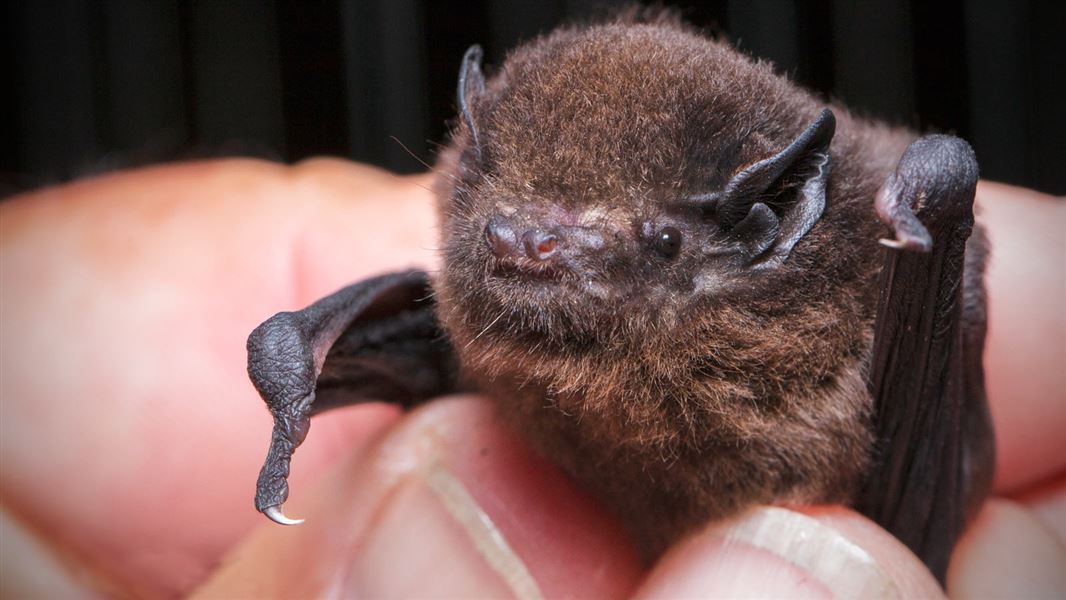Archived content: This media release was accurate on the date of publication.
Date: 10 March 2022
When rangers reported the large beech trees were at risk of falling around a camp site, senior biodiversity ranger Sarah Tunnicliffe advised that they may be roost sites for a threatened bat species.
“Both long-tailed and short-tailed pekapeka/bats are found in the area and like to roost in big old-growth trees like those coming down. We just couldn’t risk dropping a tree while they were in it.”
The popular camping area was cordoned off with signs to keep people safe.
Recorders confirmed bats were active in close proximity. The bats were identified as pekapeka tou-roa/long-tailed bats, which are classified as threatened-nationally critical.
“We had an early morning at the trees monitoring to see if the bats were coming back after a night of foraging to roost there.”
They were not found to be roosting in the trees on the day the felling was scheduled to take place.
“In the end we were able to remove the trees without potentially harming any bats, but it’s a great reminder for people to be vigilant for bats when they’re planning to cut down trees.”
Long-tailed bats aren’t just limited to forest areas and have been found in urban areas, including Hamilton.
DOC would love to hear reports of bats to help improve understanding of where populations are.
Contact your local office, in Taupō taupo@doc.govt.nz, or Tūrangi turangi@doc.govt.nz.
Contact
For media enquiries contact:
Email: media@doc.govt.nz
